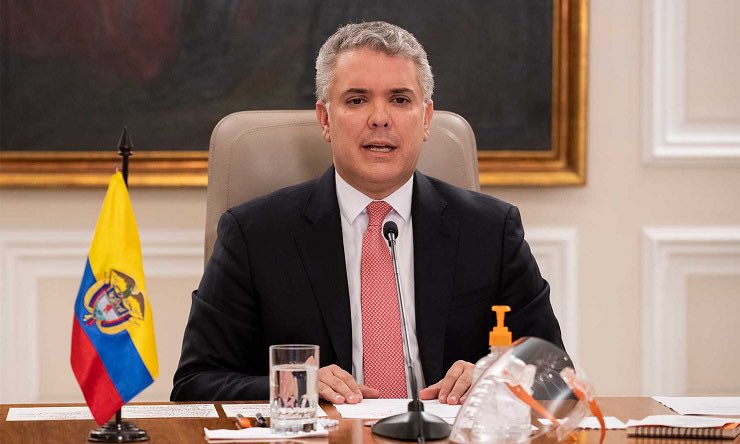President Duque announces that Colombia’s quarantine will be extended until the end of the month and the country’s sanitary emergency will continue until the end of August.

The hopes of many Colombians who’d wanted to return to work next week were dashed today when President Iván Duque announced another extension to the national quarantine. Colombia’s compulsory quarantine will now run until May 31 and the sanitary emergency will continue until August 31.
Read our latest coverage on the coronavirus in Colombia
The president said that this would gain the authorities an additional week in which to implement “fundamental measures.” Duque says that the country will be able to enter a new stage of isolation in June, one which will require more “discipline and coordination.”
Some key points about the “gradual and responsible” process of reopening the country announced today:
- Limitations on public transport will continue, operating at no more than 35% capacity.
- The majority of schools, colleges and universities will be closed throughout June and July. At-home classes and study will continue until July 31. The ministries of health and education are working towards the safe opening of educational establishments in August.
- Those who are older than 70 should continue to stay at home, but from June 1 there will be more possibilities to go out at certain times.
- More spaces will be opened for children aged 1-5, but still under careful controls.
- Domestic workers will be able to return to work.
- Restaurants will continue to operate delivery services.
- Different measures will be implemented in different cities or departments, depending on individual situations, managed with local authorities.
- Face masks and social distancing measures will still apply.
- Colombia’s borders will remain closed and both domestic and international flights will continue to be grounded until at least June 30. Intercity transport also continues to be prohibited.
The president stressed that those who don’t need to go out should continue to stay home, and where possible, to work from home. He said that, “Perhaps we will have one of the longest periods of mandatory preventive isolation in the world, but we have been doing it responsibly, gradually.”
Colombia now has 16,935 confirmed cases of coronavirus and 613 people have died of the virus which has changed our sense of normality across the world. Bogotá began its quarantine on March 20 and the whole country entered lockdown a few days later.
Some sectors have been gradually allowed to return to work, under strict protocols, but with such a large informal economy, many workers are struggling to put food on the table. This week saw new restrictions introduced in certain sectors of Bogotá where an ‘orange alert’ was declared and residents were told to stay at home.
Those who fear for the country’s economy will be unsurprised by a note today from Capital Economics that said Colombia’s downturn could be worse than feared. Citing double-digit falls in productivity in the retail, entertainment and industrial sectors, analyst Quinn Markwith wrote, “We are sceptical about the prospects of a speedy recovery later in the year even once the virus is under control.”






